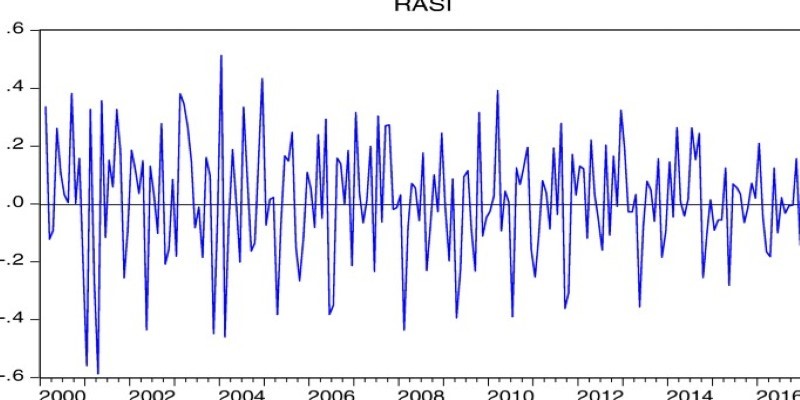How Tech Layoffs Are Impacting Stock Market Dynamics
In recent years, tech layoffs have become a significant issue affecting both workers and the broader economy. Once a symbol of unstoppable growth and innovation, the tech industry faces considerable restructuring. Companies, huge players like Meta, Amazon, and Google, are downsizing their workforce in response to various challenges, including rising costs, market saturation, and changes in consumer behaviour. These layoffs reverberate through the stock market, influencing stock prices, investor sentiment, and even the broader economy. This article will examine how tech layoffs impact stock market dynamics, focusing on stock price movements, investor behaviour, and the potential long-term effects.
Immediate Impact On Stock Prices
The first and most direct effect of tech layoffs on the stock market is stock prices' reaction. When major tech companies announce layoffs, stock prices can experience a sharp increase in the short term. On the surface, this might seem counterintuitive. After all, layoffs typically signal trouble within a company, such as declining revenues or profits. However, the stock market often reacts positively to the prospect of cost-cutting measures, especially in industries like tech, where high overhead costs are a concern.

Investors view layoffs as a sign that a company is taking steps to improve its financial health. This is often seen as an attempt to optimize operations and boost profitability. For example, suppose a company like Meta or Amazon announces that it is laying off a substantial portion of its workforce. In that case, investors may believe the company is shedding excess costs and refocusing its efforts on its most profitable areas. This can lead to an increase in stock price, at least in the short term, as investors anticipate improved earnings and cost efficiency.
Investor Sentiment And Market Volatility
The broader impact of tech layoffs extends beyond individual stock prices and affects investor sentiment. When layoffs occur in large, well-known tech companies, they can create a sense of unease in the market. This is particularly true in a year like 2025, when global economic uncertainties, rising inflation, and supply chain disruptions already have investors on edge.

Tech companies are often viewed as bellwethers for the economy, so when they start laying off employees, it can be interpreted as a sign that economic conditions are worsening. Investors may begin to worry that other sectors of the economy will face similar challenges, leading to a broader market sell-off. The tech sector, one of the largest and most influential sectors in global stock markets, can cause ripple effects in other industries. A downturn in the tech sector can lead to a broader market correction, especially if layoffs signal that more significant economic issues are at play.
Investor sentiment is particularly sensitive to layoffs in the tech sector because of the industry's history of rapid growth and high stock valuations. The tech boom of the past decade saw companies like Apple, Microsoft, and Amazon reach unprecedented heights, with investors flocking to tech stocks as safe bets. When layoffs occur, they can signal that the period of rapid expansion is over, causing a shift in investor psychology. The feeling of uncertainty can lead to increased market volatility as investors adjust their expectations and positions.
Long-Term Implications For Stock Market Dynamics
While the immediate impact of tech layoffs may be noticeable, the long-term implications for stock market dynamics are more complex and nuanced. Over time, the layoffs might shift investor behaviour and the broader tech market. If layoffs continue at a high rate across the industry, they could signal a wider slowdown in tech sector growth. Investors may question the sustainability of the high growth rates that have characterized the sector for the past decade.

In the long run, tech layoffs could lead to a fundamental restructuring of the tech market. Companies that can successfully streamline their operations and focus on core strengths may emerge more muscular, while those that struggle to adapt may find it more difficult to recover. The shift in the labour market could also have a broader impact on the types of roles in demand. Companies may increasingly seek specialized talent, and job cuts may lead to an oversupply of workers in specific fields, such as customer support, sales, or administrative roles.
One possible long-term effect of tech layoffs is the shift from growth-oriented stocks to value-oriented ones. Tech stocks have long been associated with high growth potential. Still, as layoffs become more common and growth rates slow, investors may favour companies that offer more stability and predictable earnings. In this scenario, the tech sector could see a decline in its stock market dominance, with other sectors like healthcare, energy, and financials gaining more attention from investors.
The Global Perspective: Tech Layoffs And International Markets
The effects of tech layoffs are not limited to the U.S. market. As tech companies are global, layoffs in one part of the world can ripple effect on international markets. For example, when major U.S.-based tech companies like Google or Microsoft announce layoffs, it can impact their operations and stock prices in global markets, such as Europe and Asia.

Moreover, tech layoffs can exacerbate economic challenges in other regions, particularly in developing markets where the tech sector plays a crucial role in job creation and economic development. Layoffs from global tech giants can undermine local growth and innovation in countries with emerging tech industries. International investors may adjust their portfolios based on how these layoffs affect tech companies' ability to expand and generate revenue in foreign markets.

In 2025, the global nature of tech layoffs means that stock markets worldwide are increasingly interconnected. The shifting dynamics of the tech industry can influence not just U.S. stock markets but also European, Asian, and emerging market economies. Other global challenges, such as geopolitical instability, inflation, and trade disruptions, can compound the impact of tech layoffs on international markets.
Conclusion
Tech layoffs have far-reaching effects on stock market dynamics, affecting everything from individual stock prices to broader investor sentiment and long-term market trends. While layoffs can lead to short-term gains for investors looking for cost-cutting measures, they can signal deeper company problems, leading to long-term challenges. The resulting volatility and shifts in investor behaviour can affect the overall stock market and the broader economy. In 2025, tech layoffs are reshaping the tech sector's future, investor sentiment, and global stock markets. As companies adapt to changing economic conditions, monitoring how these layoffs evolve and their long-term consequences will be essential.





